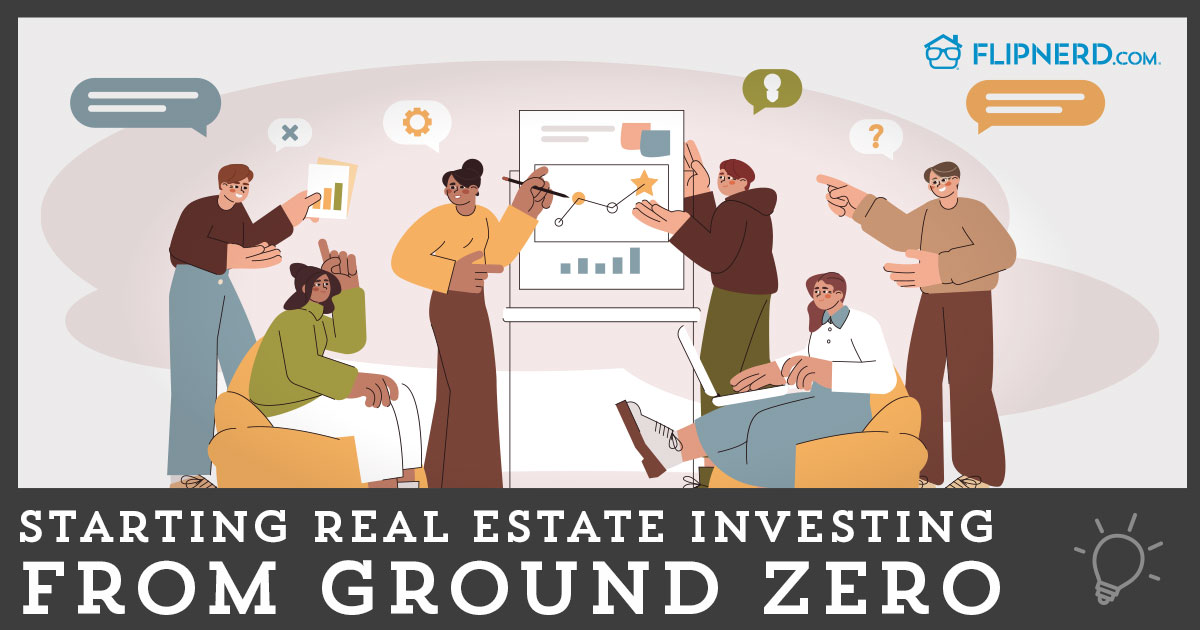It is a question that comes up too all often for real estate investors: how should I go about financing my investment property? For some, the answer may rest in using all cash to purchase and rehab their deals, while for others, the choice may be taking out a loan from either a bank or a private lender. Ask yourself these five questions next time to determine whether all cash, a bank, or a private lender is the best source of financing for you.
1. Do You Want to Ask Your Friends and Family or a Partner for Money?
Investors may think to turn to family and friends or they may form a partnership with someone else and go in on a deal together.
When it comes to family and friends, there is some risk involved due to the relationship factor. This is a business transaction turned personal and what if something goes wrong?
When working with a partner, you should evaluate what this person brings to the overall equation. Is it just money or do they actually provide valuable expertise for your business?
Although these two scenarios may appear less expensive than using a private lender or a bank, consider the significant profit you will be splitting with your partners. Typically a partner requires between 20-50% of all the profits. If this sounds like too much money to give up, then perhaps a different method of financing may be right for you.
2. How Many Properties Do You Plan to Own at the Same Time?
For first-time investors only conducting one deal at a time, you may have enough cash to finance just that one property, so applying for a loan through a bank or private lender might not be necessary.
However, more experienced investors working on multiple projects may find their cash running low. You are tying up all of your money in each of these properties, so if another property comes along you wish to invest in, you will miss other opportunities that will come along.
Using a bank may not be the best choice of financing when doing simultaneous renovations or rentals either because they can make it much more complicated or impossible once you have a certain number of properties.
Private lenders usually won’t have limits on how many properties an investor can be working on at the same time and may even offer a portfolio loan on multiple rental properties. The more projects you plan to invest in, the higher likelihood a private lender will be the best option.
3. Are You Planning to do a Fix and Flip or a Buy and Hold?
Deciding on whether you are doing a fix and flip or a buy and hold will affect which type of financing you pursue.
Fix and flips are all about speed. Using all-cash offers will help you purchase the property faster than your competition, but when it is time to rehab, if you start running low on cash as renovation expenses rise, you may not have enough of your own money to finance these repairs.
Banks can take 60 days to close a loan, so for a fix and flip deal, a bank loan probably isn’t the best choice. Plus, banks don’t give money for the renovation costs.
A private lender is much faster than a bank, with the ability to close deals in weeks instead of months. They also can provide upwards of 90% of the rehab costs, so you won’t have to worry about running low on money for those big renovations.
When it comes to a buy and hold rental property, the source of financing depends on what you are planning to do with the property. Rental investments aren’t as urgent as fix and flip, so you may not need that faster financing. If you plan to do light repairs, you can use your own cash or a bank; however, if the property requires more extensive renovations, you can minimize your out-of-pocket costs by using a private lender that can take you from a fix and flip into a rental loan. This will cover both your purchase price and rehab costs and maximize the loan when it goes into the rental loan.
4. How Strong Is Your Financial Profile?
Your financial profile is made up of your income, credit score, and available cash. How strong each of these factors are will help you determine which method of financing may be the best.
If you are going with all cash, your credit score won’t be relevant. However, you should examine your income and available cash and see if you are receiving enough cash-flow from other properties you own, and if you aren’t a full-time investor, is your other job earning you enough money. If your income is low, then you may not want to put all your cash into this next investment and leave yourself vulnerable to financial strain.
Banks will typically require better credit scores, higher income, and more available cash before determining your eligibility. With stricter guidelines, if your financial profile isn’t stellar, your chances of receiving a bank loan are much lower. Also, banks will complicate things for self-employed investors.
While private lenders usually ask for the same parts of your financial profile, their standards are much less rigid than a bank and they will work with self-employed investors and look much more at the property itself.
5. Which is Most Important to You? Speed, Down Payment, or Rate?
Cash will always win the speed debate because you already have the funds at-the-ready when you find a property you wish to invest in, but will restrict your ability to do other projects. Obviously, you won’t have a monthly payment, but you have opportunity costs.
Banks are the slowest of the three, so speed won’t be an option with them. Their rates are lower than a private lender, but they’ll require more from you for the down payment. If you don’t have enough money upfront, then this may not be the best source to use.
A private lender is faster than a bank, with closings in under two weeks. Although their rates are more, the amount they finance tends to be much higher and also includes repairs, whereas banks will almost always require 25-30% down payment and typically don’t finance repairs.
So Which Source of Financing is Right for You?
The choice is ultimately up to you which method of financing you go with. It will change depending on each individual investor’s current situation and future plans for their business. Knowing these options and understanding how cash, banks, or private lenders can help you with funding is important before making any decision on which source of financing is right for you.









